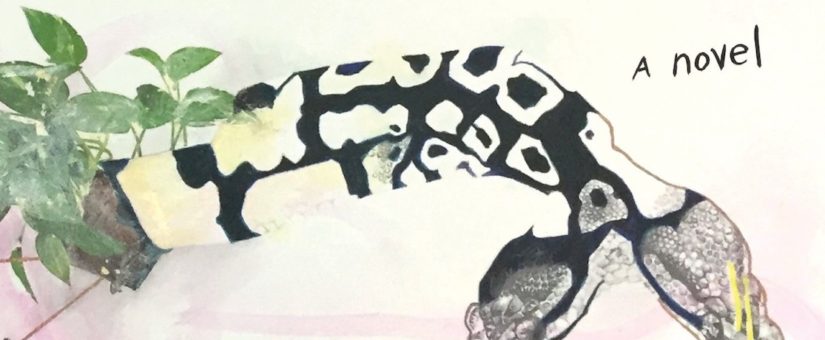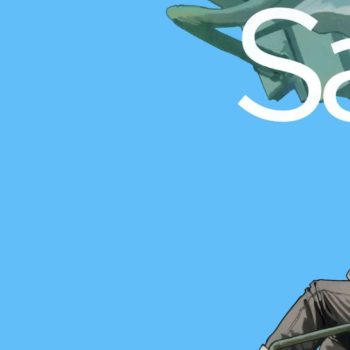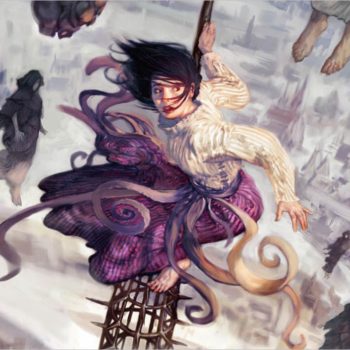
Gods and Disorders in Akwaeke Emezi’s Freshwater
- Posted by Augur Blog
- On June 5, 2019
- 0 Comments
- akwaeke emezi, book review, reading challenge
By Anna Bendiy
Ada, the protagonist in Akwaeke Emezi’s debut novel, Freshwater, is born “with one foot on the other side.”
And as the hypnotic chorus of “We” comes to tell us, this means she will go mad. What follows is an intense and brutal journey of a woman who struggles to find her footing in the face of trauma, fractured identity, mental illness, and destructive gods.
The novel is written in deceptively beautiful prose. It takes a beat to realize that the chorus has lulled the reader into a sense of trust. The Ọgbanje have taken over Ada’s story, just as they have taken over her body.
In Igbo mythology, the Ọgbanje are evil spirits who bring familial misfortune. But in Emezi’s novel, after somebody forgets to shut the gates to the divine world, they awaken underneath Ada’s skin as different selves. They have hidden themselves in the crevices of her body, they tell us, and they see her as theirs even if, “The first madness was that we were born, that they stuffed a god into a bag of skin.” It is the chorus that fulfills its prophecy to the reader; it is the Ọgbanje who drive Ada mad. In this strange, metaphoric way the novel connects the divine to mental disorders. The Ọgbanje protect Ada, but they also manipulate her as they see fit. They are the answer to her problems, and they become a whole other problem.
Depending on your personal reading of the novel, the Ọgbanje are either disorders personified, or the personification of the mind post-trauma. I would argue that it matters little where the line is drawn. The effect is the same. One of the most powerful moments in the book comes after Ada—who hasn’t even decided what sexual desire means to her—finds out that her boyfriend has been assaulting her while she was sleeping. Her rage brings one of the Ọgbanje to the forefront above all others. Emezi writes:
“She started to scream…Somewhere she could hear a building sound, a wind, huge and wide, rushing out of the void, rushing toward her. The walls, the veils in her head, they tore, they ripped, they collapsed. The wind rushed over his empty voice and the Ada thought with a sudden final clarity—
She has come. She has come for me at last.”
And from that moment Asughara takes over most of the story, nearly eviscerating Ada’s voice completely.
Both the technique and the narration become relentless. Asughara cajoles Ada into self-destructive behaviour. From a string of messy relationships, alienation, self-harm, suicidal ideation and attempts, to an eating disorder. All under the guise of protecting Ada from further trauma. If Asughara is in control, Ada won’t get hurt. She can hide away in the crevices of the mind, while a stronger personality deals with other people. But in doing so, Asughara takes away Ada’s ability to confront her trauma and to recover. Asughara saves, but also prolongs the trauma. Beneath the veil of divinity, it is easy to see how Asughara can be a metaphor for that voice inside one’s head that convinces that something is good for us when it is not.
Asughara is also a vivid representation of a person living with trauma and mental illness. Asughara is rage, pain, and the desire for revenge. She is a wish for the scales to tip towards justice—even if her sense of justice is misguided. Yet, as the narrative makes certain to point out, Asughara is not a villain in Ada’s story. She is as much part of her, as the other Ọgbanje. As Ada’s journey of self-discovery continues, it becomes clear that Asughara is as much hurt by that experience and by others as Ada is. She is the part of Ada who pulls her back into the darkness of her mind. In the end, it is Ada who must fold and accept Asughara and all the Ọgbanje into her understanding of self.
The gods also serve as an interesting portal into Ada’s exploration of gender. With time, the Ọgbanje would come to reaffirm Ada’s non-binary identity.
“The Ada felt like a trickster, which felt right. She could move between boy and girl, which was freedom, for her and for us.”
The Ọgbanje become the conduit for self-discovery. Perhaps they are not so much bringers of misfortune for Ada as they are the reflections of all of the parts that compose her.
Fantasy and gruesome reality coexist on a tenuous thread in this novel. Choosing to read it one way or another is a misstep. Together, they form a visceral, dark picture of somebody who is desperately trying not to slip away, who struggles with the darkness in her own mind.
On the page, Emezi brings trauma, race, mental illness, gender, sexuality, unruly bodies and faith to the forefront to negotiate for space with each other. How much of one’s identity are these pieces allowed to occupy?
The answer for Ada is an uncanny echo of Asughara’s words at the height of her power:
“Understand this if you understand nothing: it is a powerful thing to be seen.”
Ada chooses to be seen, with their newly-accepted trans identity, the Ọgbanje and their madness.
This book was featured in Augur’s FOLD reading challenge. Check out what else we’re reading.




0 Comments